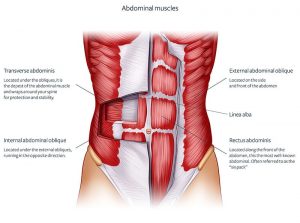Enhancing Business Efficiency Through Modern Payroll Systems
An efficient payroll system is essential to the smooth functioning of any organisation. It ensures employees are paid accurately and on time while complying with tax regulations and employment laws. A dependable system also reduces administrative errors and supports transparency in payslips and benefits. As a result, it contributes to employee satisfaction and fosters trust, ultimately enhancing overall operational performance.

Understanding Payroll Systems
A payroll system is a combination of tools and processes used to manage employee compensation. It covers wage calculations, tax deductions, benefits administration, and record-keeping, all while ensuring compliance with relevant legislation. By automating these functions, the best payroll system improves accuracy, reduces manual effort, and helps ensure timely payments. This saves time and resources and enables businesses to focus on broader strategic goals.
Key Features of a Reliable Payroll System
Automatic Calculations
Automation reduces the risk of manual errors by calculating wages, tax deductions, and other adjustments quickly and precisely. It ensures consistency and streamlines repetitive tasks, allowing HR teams to concentrate on higher-value activities.
Tax Compliance
Payroll systems support compliance with tax laws by accurately and timely calculating and submitting taxes. Integrated tax tools reduce the risk of penalties and ensure all reporting obligations are met efficiently.
System Integration
Integration with other business software, such as accounting, time tracking, or HR platforms, improves workflow and minimises duplication. Data can be shared across departments, facilitating quicker decisions and better resource management.
Employee Self-Service
A self-service portal allows staff to access payslips, request leave, and update personal information independently. This promotes transparency, improves communication, and reduces the administrative load on HR departments.
Data Security
Payroll systems handle sensitive information such as banking details and national insurance numbers. Strong data protection through encryption, secure servers, and controlled access is essential to prevent breaches and comply with data protection regulations.
Reporting Capabilities
Built-in reporting tools help generate clear, structured insights into payroll operations. These reports assist management in monitoring trends, evaluating costs, and supporting informed decision-making.
Detailed Feature Benefits
Automatic Calculations
Payroll systems ensure accuracy and save valuable time by automating complex calculations. This minimises the risk of disputes related to pay errors and improves processing speed.
Integrated Tax Compliance
Tax features built into payroll systems simplify calculating liabilities and submitting reports. This supports a more structured and error-free approach to meeting legal obligations.
Software Integration
Seamless integration helps businesses make better use of their existing tools. By linking various systems, it encourages consistency in data handling and improves communication across departments.
Employee Self-Service Portals
These systems improve efficiency by enabling employees to manage their payroll-related tasks. The result is fewer enquiries to HR, quicker resolutions, and a more engaged workforce.
Advanced Reporting Tools
Effective reporting transforms payroll data into useful insights. It allows businesses to monitor key metrics, forecast costs, and ensure accountability through transparent record-keeping.

Choosing the Right Payroll System
When selecting a payroll solution, several criteria should be considered:
Scalability
As a business grows, so do its payroll requirements. A scalable system can handle increasing staff numbers, more locations, and evolving pay structures without affecting performance.
Ease of Use
An intuitive interface and straightforward navigation reduce training time and encourage adoption. A user-friendly system enhances productivity and limits the likelihood of input errors.
Cost-Effectiveness
Businesses should assess the value a system provides relative to its cost. A cost-effective payroll solution reduces time spent on administrative tasks while supporting accuracy and compliance.
Customer Support
Access to responsive, knowledgeable support helps resolve issues quickly. Reliable assistance through multiple channels ensures minimal disruption to payroll processes.
Software Updates
Regular updates keep the system secure and aligned with current legislation. Automatic updates reduce the need for manual intervention and protect against emerging threats.
By investing in a capable payroll system with the right features and support, organisations can manage compensation more efficiently, ensure legal compliance, and improve employee satisfaction, all contributing to smoother, more effective business operations.
FAQs
What are the key benefits of automating payroll?
Automation improves accuracy, saves time, reduces administrative workload, and ensures compliance with tax laws. It also enhances data security and simplifies employee access to pay-related information.
How does a payroll system support compliance?
Modern payroll systems are designed to stay current with current legislation. They calculate deductions, generate reports, and file submissions according to tax regulations, helping businesses avoid penalties.
Can a payroll system handle both salaried and hourly employees?
Yes. Most payroll systems are equipped to manage different pay structures, including fixed salaries, hourly rates, overtime, and bonuses, making them suitable for diverse workforce types.



